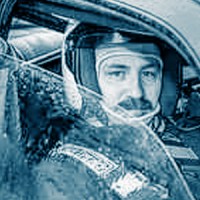The Bridgestone World Solar Challenge started this week in Darwin, Australia on a 1,900-mile race to Adelaide in a collection of 44 solar-powered vehicles. The biennial race crowns the fastest solar-powered cars in the world. Entries came from 20 different countries, and include four from the United States; University of Michigan, Stanford, the University of Minnesota, and University of California – Berkeley.
Run since 1987, this event is possibly even more relevant today than when it first started. With the onset of electric-powered cars, motorcycles, and bikes, the world could be turning a corner on how we power our transportation. With the great strides in power and distance an electric vehicle can now travel, it makes sense to look for the same gains in solar power.
Teams arrive days before the event start to take their entries through 14 stringent technical inspections before they can even start the event to determine pole position. The Top Dutch Solar Racing car named Green Lightning led off the event after earning that pole position with the fastest lap around Hidden Valley Raceway.
Now all entries are making their way south through the Northern Territory and South Australia, parts of the country known for difficult conditions that will test the preparation these teams spent years trying to perfect. Any flaws in the design will quickly rear their heads as teams race to be the furthest competitor by the 5:00 p.m. cut-off when teams have to camp in the desert and be self-sufficient until the 8:00 a.m. start time allows them to continue the next day. Each car carries a data logger and tracking to ensure the car starts and ends its day on time. Time penalties will be assessed for each minute early or late a team starts or continues outside of the official times.
Alumni from this race have gone to pioneer innovative projects including Tesla’s Chief Technical Officer, JB Straubel, and Google co-founder Larry Page. Hundreds of alumni from solar car racing have gone on to innovate with Google, Microsoft, Ford, and Cirrus Aircraft just to name a few.
Teams are expected to finish in Adelaide by Thursday, October 17th. Winning speeds are expected to be in the 55-62 miles per hour range.
UPDATE:
Belgium’s KU Leuven University has won a 3,000-km (1,864-mile) race. The Belgian team won on its eighth attempt in just shy of 73 hours averaging 53.8 miles per hour. They were followed by a team from Japan’s Tokai University that arrived a few minutes later, and third place went to the team from the University of Michigan.



